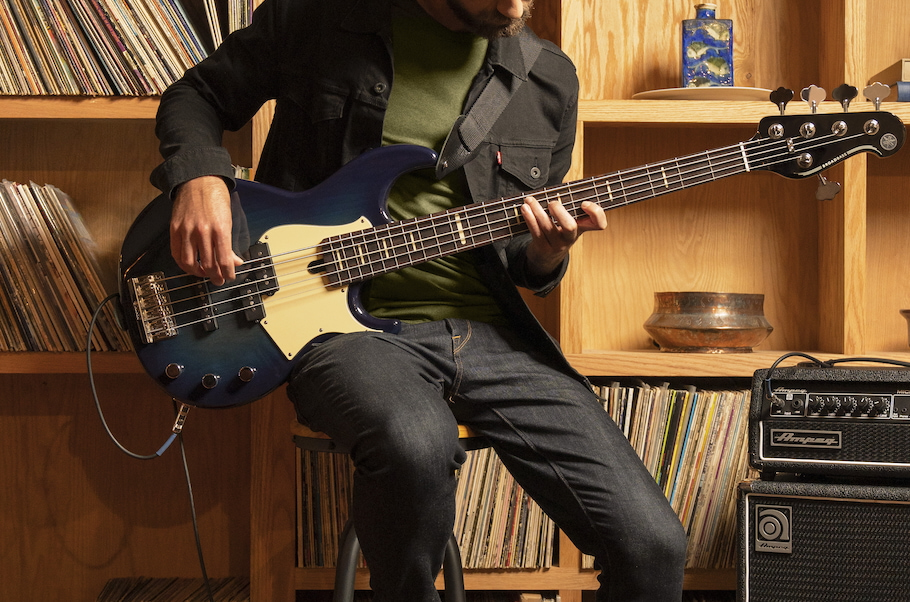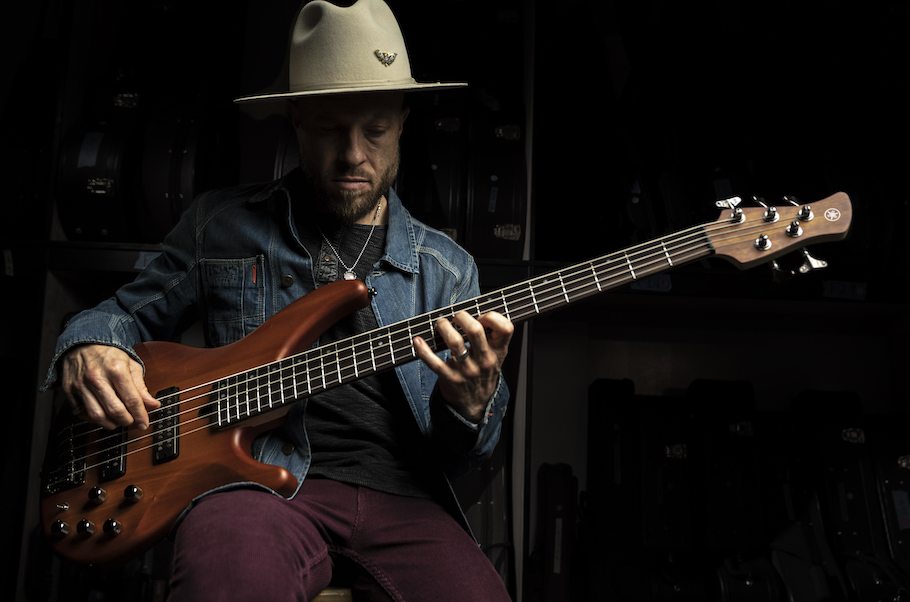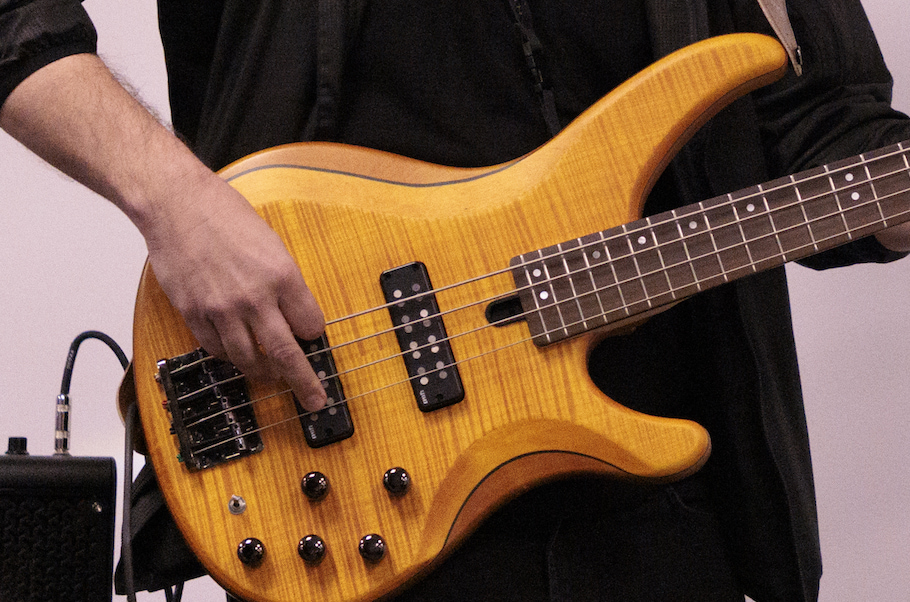Seven Tips for Playing Bass in Your First Band
A starter checklist to get you ready for the big time.
Most bassists don’t dream of becoming a solo artist — instead, they dream of playing with other talented musicians in a band. Whether you aspire to be in a duo, a power trio, a fab foursome, a jazz quintet or a big band, there are a number of fundamental steps you can take to pass an audition, meet your fellow musicians’ expectations and become an indispensable, full-fledged band member. Here’s a starter checklist to get you ready for the big time.
1. Have Reliable Gear
The instruments, amps and other gear that musical groups use are typically a reflection of what the band members like — or can afford. But other times the gear connotes a specific vibe they want to give off. (You probably won’t find an acoustic bass in a thrash-metal band, for example.) Which brings us to Rule #1: No matter what bass and amp you use, make sure it works as it should. In terms of your bass, that means it’s a quality instrument (Yamaha offers lots of different models to choose from, from entry-level to professional grade) that has been set up properly and isn’t suffering from performance issues like buzz and hum, poor intonation or an inability to stay in tune.

Similarly, be sure your amp is suitable for the type of music you’ll be playing, that it sounds good, has adequate power and no blown speakers. The well-known company Ampeg make a line of Rocket Bass amps that are all eminently suitable for bassists in first-time bands. While we’re at it, make sure your instrument cable works perfectly, your strap is in your case, you have a fresh battery if you own a bass equipped with active electronics, and an extra set of strings in case you break one. In other words, be prepared.
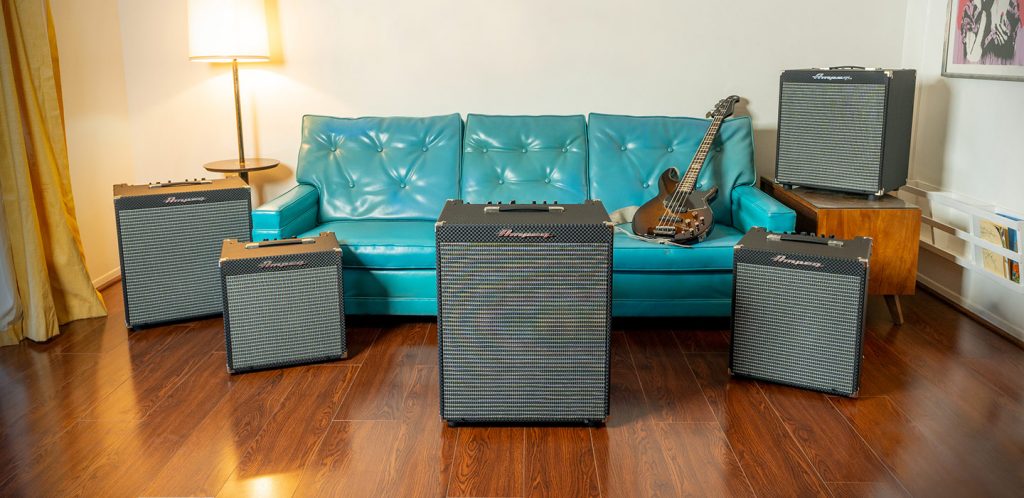
The bottom line is this: You can be the best player in the world, but if your gear doesn’t function properly, that’s what people will remember about you. As the saying goes, you only get to make a first impression once.
2. Show Up on Time
Whether you’re going to an audition, a rehearsal or a gig, show up on time. Better yet, be early. No excuses. Being late is bad form, and starts you off on the wrong foot. It’s always good form to be punctual; and if you can’t be early, at least don’t turn up late. Of course, it’s inevitable that someone will be delayed every once in a while for a valid reason, and at some point it’ll happen to you. But it can’t happen over and over again, or you’ll find yourself outside looking in. Every minute of rented rehearsal space costs money, and even if money isn’t an issue, you shouldn’t keep other people waiting for you, especially if you’re the new person in the band. The issue is magnified when you’re gigging: Do not under any circumstances show up late and miss sound check or show time. Most bands have at least one time-challenged member, but don’t let that person be you.
3. Do Your Homework
Don’t show up to an audition or rehearsal without knowing the material you’ll be playing. If you know most of the songs and have questions about a specific change or part you don’t understand, that’s fine. But if you think you’re going to waltz into the room without having run through the material beforehand, think again: Your lack of preparedness is probably going to be obvious, and it’s going to tick off your bandmates. Showing up unprepared says you don’t care enough about the people you’re playing with, and/or that you think too highly of your own chops. Believe me, it’s not the precedent you want to set.
I suggest you make it a habit to run through the songs on your own at least once or twice before each rehearsal — enough to ensure that nothing comes as a surprise when you’re practicing with your bandmates. Sometimes it’s enough to stick to root notes in the early stages of working through a song if you don’t have the specifics of a bassline down yet, but at the very least, you have to know the chord changes; otherwise, you’ll be lost, and everyone will hear you flailing around. It’s the surest way to flub an audition or ruin a rehearsal. So don’t be lazy. Learn the material.
4. Learn at Least a Little Music Theory
Great players aren’t born, they’re forged in the fires of practice, studying, listening and performing. For me, studying theory has always been the weakest aspect of my playing, but I’ve always known enough to understand what’s going on. In other words, I know what I don’t know — and it’s a lot.
That said, I can hear a drum groove and figure out the time signature, select the right notes to play in a given progression or arrangement, and I am conversant with other musicians when we’re using actual words rather than notes to communicate what we’re doing or want to do. Degrees in music theory aren’t required, but they won’t hurt, and having basic knowledge is always an advantage over ignorance. The more you know, the more you can contribute to the whole.
5. Bring a Tuner
In this day and age, a tuner is a no-brainer for home, stage or studio use, whether it’s a clip-on unit that attaches to your headstock like the Yamaha GCT1, a stompbox, a multi-effect device with a built-in tuner or a dedicated rack-mounted tuner. For the purposes of auditions and rehearsals, any of these options will do. You don’t necessarily need to mute your volume when you’re tuning up, although doing so is always appreciated, and is a pro move.
But unless you have perfect pitch (and you most likely don’t), you need to have a tuner in your signal chain or within easy reach, and you need to use it religiously.
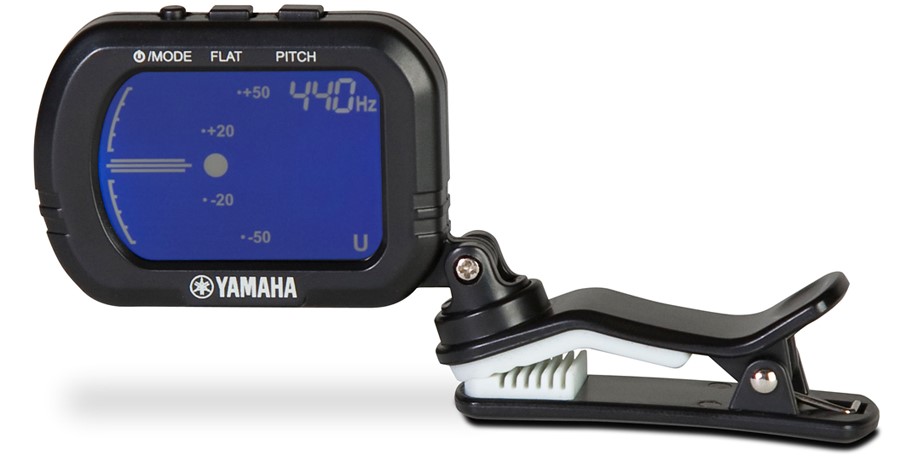
If you don’t own a tuner, go buy one. If you own one and don’t use it, stop undermining yourself and make using it a habit. Playing in tune won’t necessarily make you better, but it eliminates a problem that could otherwise doom your tenure in any band.
6. Less is More
Auditions are your first opportunity to show off your talent and versatility, but don’t overdo it. Play with energy, and in the pocket, but only play what’s necessary. Experienced bassists know that the space in-between the notes is just as important as what you play. A good bass line is a combination of the right note pattern, the right syncopation, and lots of air for it to breathe. Resist the urge to show off and play too much.
7. Lock in with the Drummer
The essence of groove is when the bass and drums lock together. It’s that magical “mojo” that melds the two, making each instrument sound better and more powerful than they do on their own. You need to learn how to read the drummer’s mind simply by looking into their eyes. That doesn’t mean staring at their foot to copy their kick drum pattern (although that can work wonders when all else fails). It means knowing your part, knowing their part, actively listening, and complementing each other with your rhythmic and note choices.
When your bassline slots in with a kick drum pattern, everyone in the room will hear it and respond to it — the audience and your fellow bandmembers alike. One thing most great pop, rock, soul and R&B records have in common is that the drums and bass are working hand-in-hand from start to finish. Believe me, when you learn how to pull this off, it feels so good, it almost becomes an obsession — the more you do it, the more you want to do it. The best rhythm sections do it with authority.
The best way to teach yourself how to find a groove is to practice scales and patterns with a metronome — the slower the better — so that you can nail beats at any reasonable tempo. Then raise your game by playing along with drum loops, a drum machine, isolated drum tracks, or your favorite songs. As you move on to playing with your band’s drummer, make this a focus and eventually it will start to happen all by itself.
So, to summarize: Get your gear together. Show up on time. Do your homework. Learn some music theory. Bring a tuner. Adopt a “less is more” approach. Work hard with your drummer to craft a groove. If you do these things, you’ll be off to a great start. So what are you waiting for? Grab that bass and start rocking!










